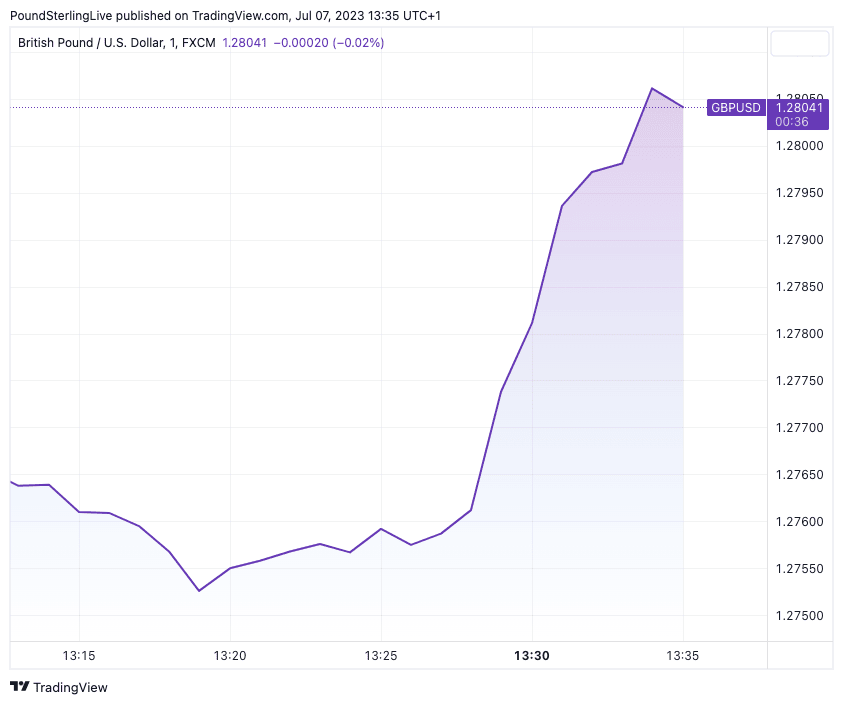Dollar Falls on U.S. Jobs Undershoot
- Written by: Gary Howes

Image © Adobe Images
The Pound to Dollar exchange rate was notably higher after a key U.S. jobs report undershot against market expectations prompting an easing in Federal Reserve rate hike expectations, however rising wages could limit any downside pressures on the Dollar.
The Dollar was widely sold in the immediate aftermath of news the headline U.S. non-farm payroll read at 209K in June, down on 306K the month prior and below expectations for 225K before paring losses as more details from the labour market report were digested.
It is significant to note that this is the first time that the report has undershot expectations in 15 months, which might give added downside weight to U.S. interest rate expectations.
Following the data, the Pound-Dollar exchange rate was higher by half a per cent to 1.28, its highest level since June 22, before paring the advance to 1.2780.
GBP to USD Transfer Savings Calculator
How much are you sending from pounds to dollars?
Your potential USD savings on this GBP transfer:
$1,702
By using specialist providers vs high street banks
"If the market sees even the smallest indication that the labour market in the US is not as robust as expected, I expect to see a weaker dollar," says Antje Praefcke, FX Analyst at Commerzbank.
The undershoot in the data will come as a surprise to a market that was revising up expectations for this report given Thursday's run of above-consensus labour market survey readings, which included a sizeable beat from ADP.
But the NFP figure will be regarded as the final word on the matter and will likely prompt markets to reconsider a second rate hike at the U.S. Federal Reserve after the likely July hike.
"The reaction of the dollar is likely to be more pronounced in case of a disappointing result," says Praefcke.
Above: Initial GBPUSD price action following the NFP release.
The economy nevertheless remains in robust form despite slowing employment growth and a July hike is therefore expected.
The Dollar will however find some defence in other elements of the report, which includes a fall in the unemployment rate to 3.6% and a rise in wages to 0.4% m/m, which was above expectation.
"The cooling in hiring is a welcome development, but the pace is still above growth in the working-age population, and combined with continued wage pressures and the drop in the unemployment rate, this leaves the Fed on track to hike rates by 25bps in both July and September to reach terminal," says Katherine Judge, an economist at CIBC Capital Markets.
"Despite choppy waters in the US economy at the moment, the jobs market remains on an even keel. The unemployment rate dipped slightly to 3.6% following the rise in May, and while jobs growth in the US slowed somewhat in June with 209,000 jobs added compared to 339,000 in May, this is unlikely to deter the Federal Reserve from marching ahead with a rate hike at its monetary policy meeting later this month," says Richard Carter, head of fixed interest research at Quilter Cheviot.
The next major event for the Dollar will be next week's inflation reading, which should firm expectations for future moves at the Fed.
"Next week’s inflation figures will paint a clearer picture of the Fed’s next steps, but today’s figures suggest that not only will it hike rates later this month, but it may have to go even further than it would have hoped in the coming months if the labour market does not begin to show signs of weakening," says Carter.
GBP to USD Transfer Savings Calculator
How much are you sending from pounds to dollars?
Your potential USD savings on this GBP transfer:
$1,702
By using specialist providers vs high street banks





